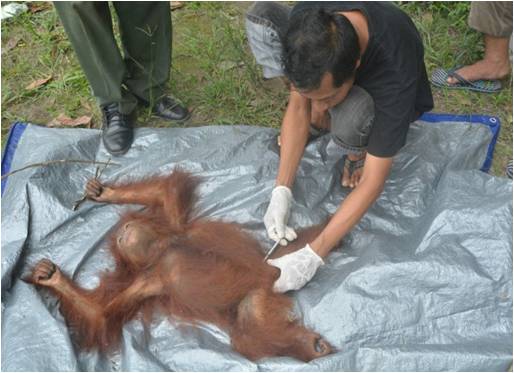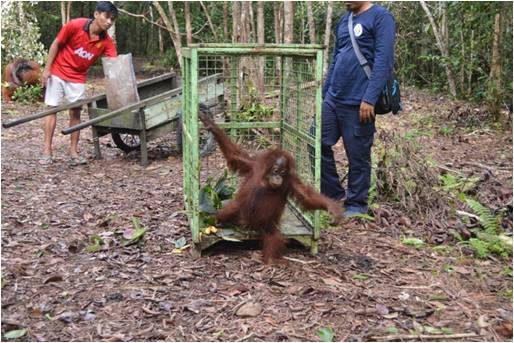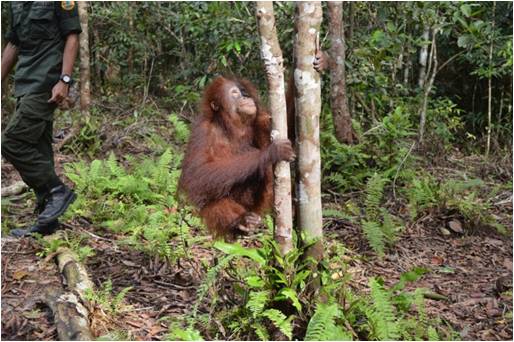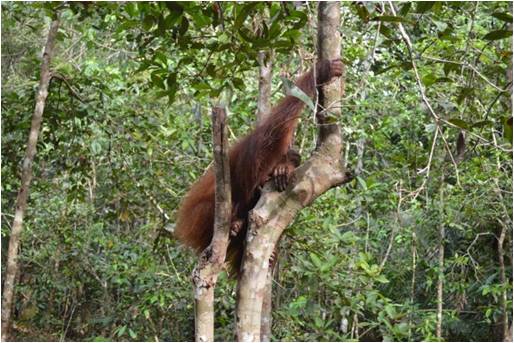We think all concerned must have been surprised to find a 12-year-old male sun bear being kept as a pet by Mr Sutiyo, the vice-head of the district resort police. Mr Sutiyo had kept the sun bear for 12 years, feeding him a fattening diet of rice, sugar and honey. Upon the arrival of a translocation team, the bear was anaesthetised by the Foundation vet, Dr Wawan, and put into a large cage so that he could be transported to Pangkalan Bun.

As Mr Sutiyo was leaving Sampit, for Jakarta, he finally made the decision to give his pet up to the authorities, and allow him be returned to the wild. Unfortunately, since the sun bear has been kept as a pet for so many years, and is very overweight due to its poor diet, it will not make a suitable candidate for release. Exotic pets lack the ability to feed, protect or more generally fend for themselves in the wild, and they face an extremely low rate of survival if released without these skills.
For this reason, our staff could not free the sun bear into one of the Foundation’s release sites. Instead it was coordinated that the sun bear be taken to Orangutan Foundation International’s (OFI) orangutan care and quarantine facility, where he will get the care he needs, yet sadly with little hope of eventual release.
This is a prime example of the unfair consequences of keeping wild animals as pets, and is sadly not the first case we’ve heard of people in authoritative positions being held accountable. Cases like these only highlight the importance of our educational programmes, through which the Foundation endeavours to teach local communities the implications of holding orangutans captive. We hope that these programmes continue to be met with great success.
Help us to continue this much-needed work by donating toward our educational programmes in Central Kalimantan, Indonesia. http://www.orangutan.org.uk/how-to-help/make-a-donation










